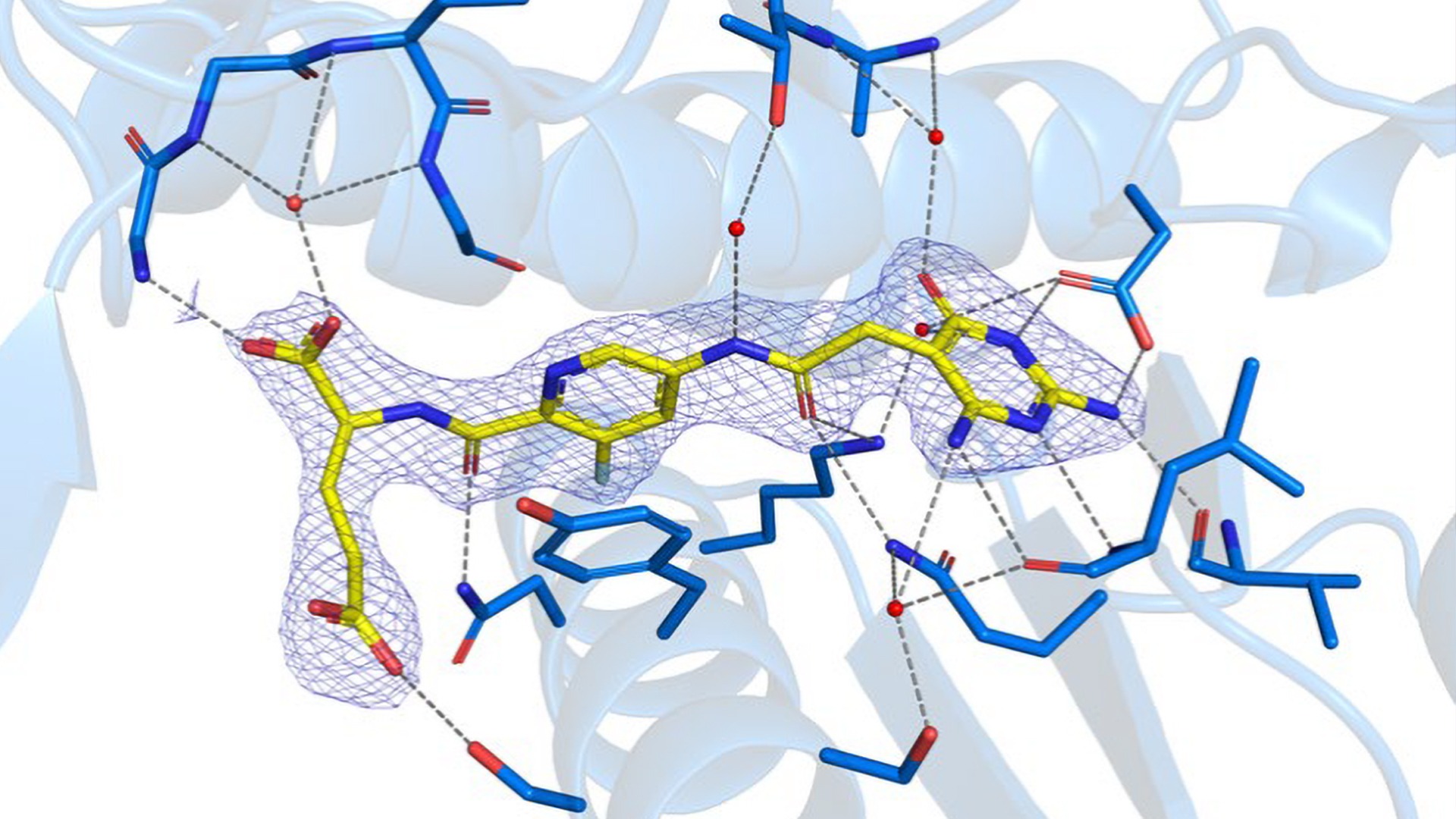Novel hematological cancer drug target
In collaboration with researchers from five Swedish universities and four other European countries, SciLifeLab group leader Thomas Helleday (KI) has published data suggesting that the novel drug candidate, TH9619, could be used to target the metabolic protein MTHFD2. The results, published in Nature Cancer, propose a new type of treatment that in the future could have the potential to treat hematological cancers.
DNA repair inhibition is known to be an efficient way to kill cancer cells. However, this type of inhibitory drug often causes toxicity also in healthy cells, which leads to negative side effects of the drug, and can be limiting for effective treatment.
Through a research collaboration between five Swedish universities, SciLifeLab and researchers from Germany, Luxembourg, Norway, and UK, a drug candidate has been identified. The drug candidate, TH9619, targets and inhibit the MTHFD2 protein. MTHFD2 is a folate metabolic protein that cancer cells need to survive, especially certain types of blood cancer cells. The results indicate that TH9619 has potential to be developed into a cancer drug with milder side effects. Thus, the next step will be to further evaluate the potency of TH9619 through safety studies.
“Overall, these results demonstrate a functional link between MTHFD2-dependent cancer metabolism and replication stress that can be exploited therapeutically as a new class of inhibitors” says last author Thomas Helleday (SciLifeLab/Karolinska Institutet).
The study has been conducted at SciLifeLab involving several platforms, in particular the Drug Discovery and Development Platform (DDD).
Further reading: Latest DDD-exit: MTHFD2 inhibitor for AML treatment
Image: Drug target candidate TH9619 bound to protein MTHFD2





